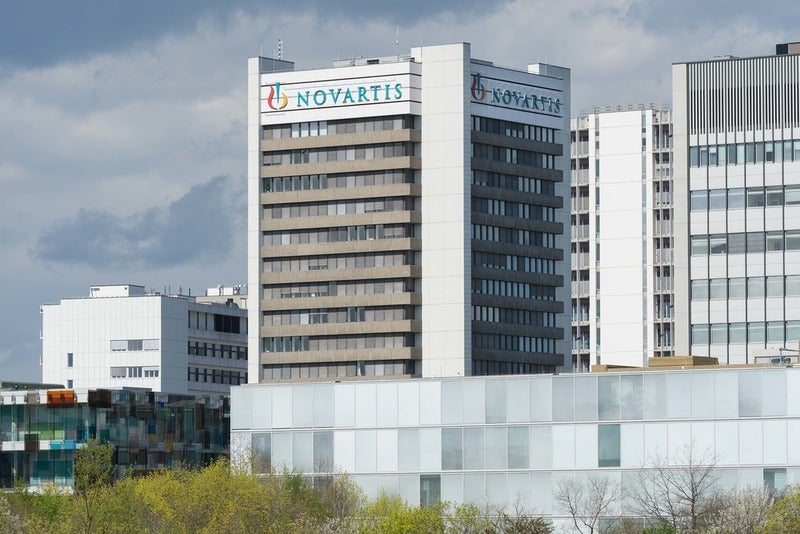
Novartis has obtained approval from the US Food and Drug Administration (FDA) for its relapsing multiple sclerosis (RMS) drug Mayzent (siponimod).
The approval covers indication for secondary progressive multiple sclerosis (SPMS) with active disease, relapsing remitting multiple sclerosis (RRMS) and clinically isolated syndrome (CIS).

Discover B2B Marketing That Performs
Combine business intelligence and editorial excellence to reach engaged professionals across 36 leading media platforms.
Multiple Sclerosis is a chronic disorder affecting the central nervous system (CNS). SPMS is a debilitating form of the disorder and is characterised by progressive and irreversible neurological disability.
Nearly 80% of patients with RRMS develop SPMS. Mayzent is intended to help RRMS patients in transition as well as those suffering with active SPMS.
The drug is a selective modulator of sphingosine 1-phosphate receptors, S1P1 and S1P5, leading to anti-inflammatory effects and promotion of re-myelination.
Novartis Pharmaceuticals CEO Paul Hudson said: “With Mayzent, SPMS patients with active disease will have access to the first effective oral therapy directed towards disease progression, even when MS transitions to a stage where deterioration is less dependent on the usual relapse activity.

US Tariffs are shifting - will you react or anticipate?
Don’t let policy changes catch you off guard. Stay proactive with real-time data and expert analysis.
By GlobalData“Most patients transition from RRMS to SPMS over time. Therefore, starting therapy early is critical for patients to help slow the rate of disability progression.”
The FDA approval is based on results from the Phase III clinical trial that evaluated the safety and efficacy of Mayzent compared to placebo. The trial was conducted in a total of 1,651 SPMS patients across 31 countries.
EXPAND enrolled patients who had MS for about 16 years. More than 50% of the participants had a median Expanded Disability Status Scale (EDSS) score of six and relied on a walking aid.
Data showed that Mayzent significantly decreased the risk of three-month confirmed disability progression (CDP) in patients with relapse activity two years before screening.
In addition, the drug led to meaningful delay in the risk of six-month CDP and 55% decrease in the annualised relapse rate (ARR).
Favourable outcomes were also observed in other MS disease activity measures such as cognition, MRI disease activity and brain volume loss. Most common adverse reactions in the trials included headache, hypertension and liver function test increases.
FDA noted that the drug must be dispensed with a guide that provides information on its uses and risks.
Novartis plans to launch the drug in the US next week. Reuters noted that Mayzent will be priced at $88,000 per year.




